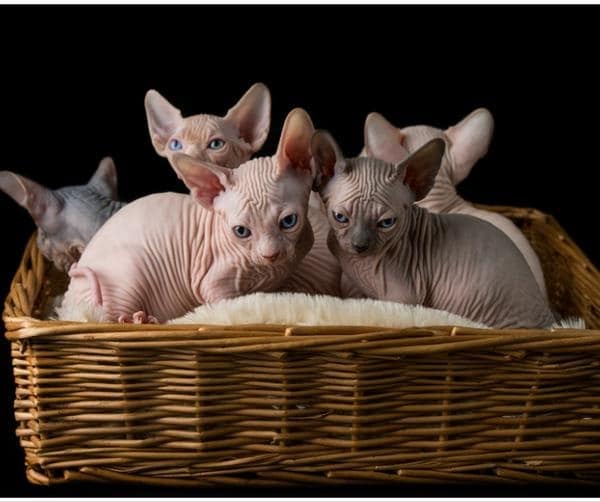Introduction: Unveiling the Enigmatic Sphynx Cat Breed
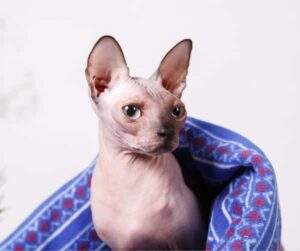 The Sphynx cat breed is undoubtedly one of the most unique and enigmatic feline companions you can find. With their hairless bodies and captivating eyes, these cats have captured the hearts of many cat lovers around the world.
The Sphynx cat breed is undoubtedly one of the most unique and enigmatic feline companions you can find. With their hairless bodies and captivating eyes, these cats have captured the hearts of many cat lovers around the world.
In this comprehensive guide, we will delve into the origins, physical characteristics, temperament, health considerations, grooming needs, diet and nutrition, exercise requirements, training tips, and adoption process of the Sphynx cat breed.
By the end of this article, you will have a complete understanding of what it takes to care for and enjoy the company of these loving and fascinating creatures.
A Brief History: Origins and Development of the Sphynx Cat
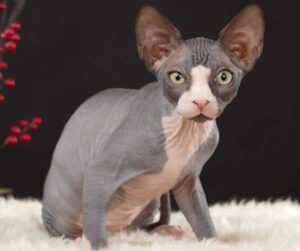 Contrary to popular belief, the Sphynx cat breed is not actually completely hairless. They have a fine layer of downy hair that gives them a unique texture and appearance. The breed originated in Toronto, Canada in the 1960s when a domestic cat gave birth to a hairless kitten.
Contrary to popular belief, the Sphynx cat breed is not actually completely hairless. They have a fine layer of downy hair that gives them a unique texture and appearance. The breed originated in Toronto, Canada in the 1960s when a domestic cat gave birth to a hairless kitten.
This kitten, named Prune, became the foundation of the Sphynx breed. Through selective breeding, breeders were able to develop a line of cats with the desired hairless trait.
Physical Characteristics: Exploring the Unique Appearance of Sphynx Cats
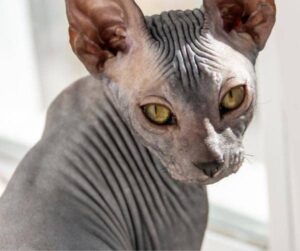 Sphynx cats are known for their distinctive appearance. Their lack of fur exposes their wrinkled skin, which can vary in color and pattern.
Sphynx cats are known for their distinctive appearance. Their lack of fur exposes their wrinkled skin, which can vary in color and pattern.
Despite their hairless bodies, Sphynx cats are not completely devoid of hair. They have a fine layer of downy hair that can be seen and felt when you touch them. This hair can vary in length and texture, giving each cat a unique look.
Are Sphynx Cats Hypoallergenic?
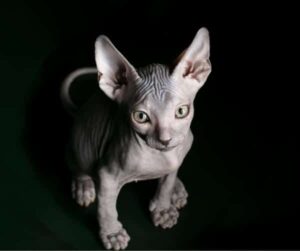 Sphynx cats are often considered to be hypoallergenic. While no cat breed is completely hypoallergenic, Sphynx cats produce fewer allergenic proteins in their saliva and skin compared to other breeds.
Sphynx cats are often considered to be hypoallergenic. While no cat breed is completely hypoallergenic, Sphynx cats produce fewer allergenic proteins in their saliva and skin compared to other breeds.
Most people with cat allergies are actually allergic to a specific protein called Fel d 1, which is primarily found in a cat’s saliva and skin. Since Sphynx cats have very little fur, they produce less of this protein, making them a better option for individuals with allergies.
However, it is important to note that every person’s allergies are unique, and what may trigger an allergic reaction in one person might not affect another. Therefore, it is always advisable for individuals with allergies to spend some time with a Sphynx cat before deciding to bring one into their home.
Skin Care: Essential Tips for Maintaining the Sphynx Cat’s Hairless Coat
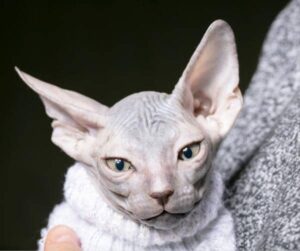 Due to their lack of fur, Sphynx cats require special attention when it comes to skin care. Regular bathing is necessary to remove excess oils and keep their skin clean. It is important to use a gentle, hypoallergenic shampoo specifically formulated for cats to avoid skin irritation.
Due to their lack of fur, Sphynx cats require special attention when it comes to skin care. Regular bathing is necessary to remove excess oils and keep their skin clean. It is important to use a gentle, hypoallergenic shampoo specifically formulated for cats to avoid skin irritation.
After bathing, it is crucial to thoroughly dry the cat to prevent them from getting cold. Additionally, Sphynx cats are prone to sunburn, so it is important to protect their skin from direct sunlight by applying pet-safe sunscreen or providing them with shade.
Temperament and Personality: Understanding the Sphynx Cat’s Loving Nature
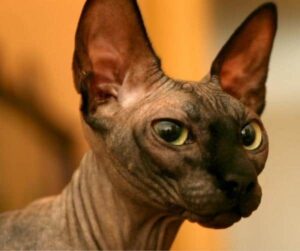 Sphynx cats are known for their affectionate and loving nature. They thrive on human companionship and enjoy being the center of attention. These cats are highly social and enjoy interacting with their owners and other pets.
Sphynx cats are known for their affectionate and loving nature. They thrive on human companionship and enjoy being the center of attention. These cats are highly social and enjoy interacting with their owners and other pets.
They are often described as extroverted, playful, and curious. Sphynx cats are also known for their intelligence and can be trained to perform tricks and behaviors.
Socialization: How to Raise a Well-Adjusted Sphynx Cat
Proper socialization is crucial for Sphynx cats to develop into well-adjusted and confident companions. It is important to expose them to various people, animals, and environments from a young age.
This will help them become comfortable and adaptable in different situations. Positive reinforcement training methods should be used to encourage desired behaviors and discourage unwanted ones.
Providing plenty of toys, scratching posts, and climbing structures will also help keep them mentally stimulated and prevent boredom.
Health Considerations: Common Medical Issues in Sphynx Cats
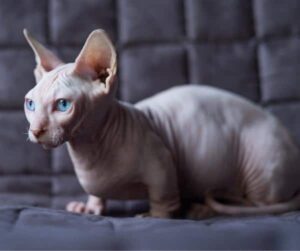 While Sphynx cats are generally healthy, they are prone to certain medical conditions. One of the most common issues is hypertrophic cardiomyopathy, a heart disease that can lead to heart failure.
While Sphynx cats are generally healthy, they are prone to certain medical conditions. One of the most common issues is hypertrophic cardiomyopathy, a heart disease that can lead to heart failure.
Regular veterinary check-ups and screenings are essential to monitor their heart health. Sphynx cats are also susceptible to skin conditions such as sunburn, acne, and fungal infections. Regular grooming and skin care routines can help prevent and manage these issues.
Grooming and Hygiene: Special Care for the Hairless Sphynx Cat
Although Sphynx cats do not require traditional brushing and shedding maintenance, they still need regular grooming to keep their skin healthy. This includes regular bathing to remove oils and debris, as well as cleaning their ears and trimming their nails.
It is important to use gentle products and techniques to avoid irritating their sensitive skin. Regular dental care is also crucial to prevent dental diseases.
Diet and Nutrition: Feeding Guidelines for a Healthy Sphynx Cat
 A balanced and nutritious diet is essential for the overall health and well-being of Sphynx cats. High-quality cat food that is specifically formulated for their nutritional needs should be provided.
A balanced and nutritious diet is essential for the overall health and well-being of Sphynx cats. High-quality cat food that is specifically formulated for their nutritional needs should be provided.
It is important to consult with a veterinarian to determine the appropriate portion sizes and feeding schedule based on the cat’s age, weight, and activity level. Fresh water should always be available to keep them hydrated.
Exercise and Play: Keeping Your Sphynx Cat Active and Engaged
Despite their lack of fur, Sphynx cats are energetic and playful creatures that require regular exercise and mental stimulation. Interactive toys, puzzle feeders, and scratching posts can help keep them entertained and prevent destructive behaviors.
Regular play sessions and interactive playtime with their owners are also important for bonding and keeping them physically active.
Training Tips: Teaching Tricks and Behaviors to Your Sphynx Cat
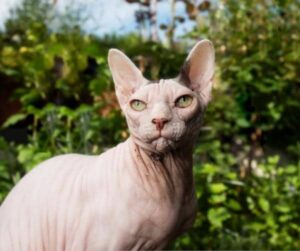 These hairless cats are highly intelligent and can be trained to perform tricks and behaviors. Positive reinforcement training methods, such as clicker training and treats, work well with these cats. Start with simple commands like sit, stay, and come, and gradually progress to more complex tricks. Consistency, patience, and rewards are key to successful training.
These hairless cats are highly intelligent and can be trained to perform tricks and behaviors. Positive reinforcement training methods, such as clicker training and treats, work well with these cats. Start with simple commands like sit, stay, and come, and gradually progress to more complex tricks. Consistency, patience, and rewards are key to successful training.
Finding Your Perfect Match: Choosing and Adopting a Sphynx Cat
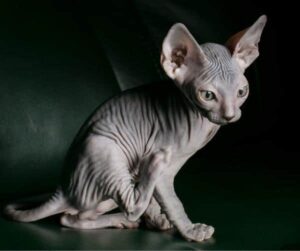 When considering adopting a Sphynx cat, it is important to do thorough research and find a reputable breeder or rescue organization. Visit the breeder’s facility or meet the cat in person to ensure they are healthy and well-cared for.
When considering adopting a Sphynx cat, it is important to do thorough research and find a reputable breeder or rescue organization. Visit the breeder’s facility or meet the cat in person to ensure they are healthy and well-cared for.
Ask about the cat’s medical history, vaccinations, and any genetic testing that has been done. If adopting from a rescue organization, inquire about the cat’s background and any special needs they may have. Taking the time to find the right match will ensure a happy and fulfilling relationship with your Sphynx cat.
In conclusion, Sphynx cats are truly unique and captivating companions. Their hairless bodies, loving nature, and playful personalities make them a joy to have in your home.
By understanding their origins, physical characteristics, temperament, health considerations, grooming needs, diet and nutrition, exercise requirements, training tips, and adoption process, you will be well-prepared to provide the best care and love for your Sphynx cat.
So, if you’re ready to embark on a journey with these hairless wonders, get ready for a lifetime of love and companionship with your Sphynx cat.

